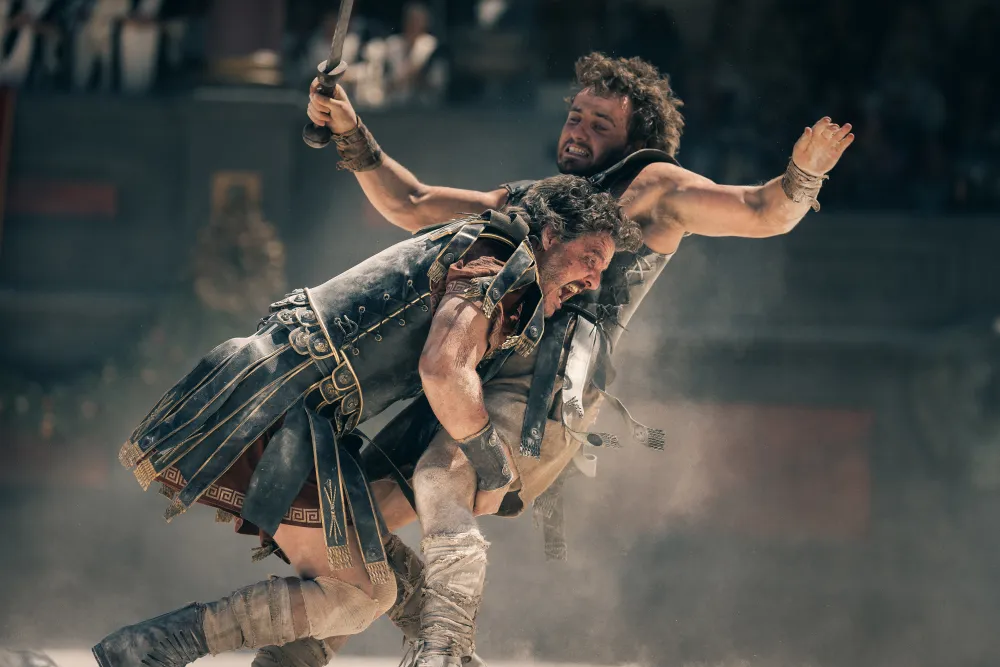(The following film review contains spoilers.)
Can you see “Gladiator II” without seeing the original film? That’s what my roommate, GeraldineJohnna Arcelay, and I were wondering on our way to see “Gladiator II” for the sole purpose of seeing Pedro Pascal on the big screen.
Turns out, you can go into “Gladiator II” completely blind without knowing anything about its predecessor and still thoroughly enjoy it.
From the impressive sets and score to the memorable acting performances, “Gladiator II” left me on the edge of my seat wondering what would happen next. The intricate weaving of the coup and who was really in command, done by the film’s writer David Scarpa, left audiences wondering who could and who couldn’t be trusted.
Paul Mescal, who played Lucius, and Pedro Pascal, who played General Acacius, lit up the screen and you could feel their desire for freedom from the emperors. Their relationship, which is one of the most complicated ones in the film, was brilliantly tied together to showcase the cause that unified them.
Joseph Quinn and Fred Hechinger who played Emperors Geta and Caracalla truly did a fantastic job at highlighting how bizarre and unnerving their characters were. The unpredictability of their actions, specifically Quinn’s character, left me wondering if they really did have a grip on what was going on or if they were truly unaware of their fading influence in Rome.
Denzel Washington’s performance of Macrinus left me stunned as I realized that he was really after the role of emperor. His ability to stay cool on his rise in influence left me believing that he was just along for the ride, when in reality his character had control of the situation.
Throughout the film, there was plenty of action and fighting to keep audiences entertained, similar to the spectators in the film. While I am not usually one to shy away from violent movies, I even found myself surprised at how violent this film was, despite it being about a gladiator.
However, the violence did serve a role to emphasize just how violent Rome was becoming. That’s why I found the ending to be a bit disappointing and anti-climatic. At the end of the film, two armies come together to fight, with one serving Lucius (Mescal) and the other serving Macrinus (Washington). After all the secret meetings held throughout the movie to organize the troops along with other dramatic build-ups, only Lucius and Macrinus end up fighting each other while the armies watch.
This fight was over quickly, leaving Lucius (Mescal) victorious, and myself, a bit disappointed. The disappointment furthered in the final scene of the movie when we see a hand moving through the grass while “hope-core” music plays in the background. While I found the movie’s score to be impressive and powerful throughout the film, this final shot seemed silly and less impactful because of the music choice.
The film’s cinematography was very well done throughout the film. The film was directed by Ridley Scott, most well-known for the “Alien” franchise.
The film’s sets and costumes were very impressive. While watching, I felt transported back to Ancient Rome because of the attention to detail put into the set design and costumes.
Despite not having seen the original “Gladiator” movie, I walked out of “Gladiator II” marveling at the performances and storytelling done in the film.




